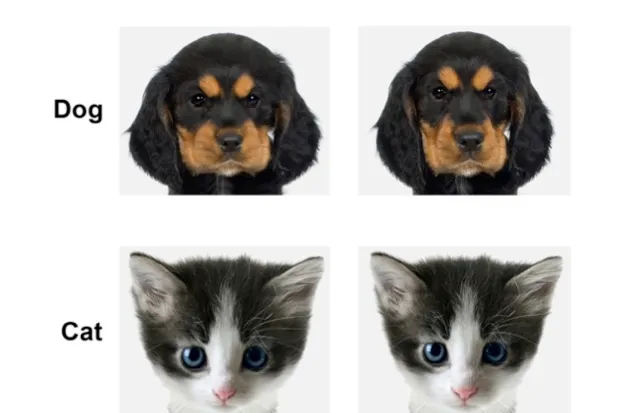From fluffy kittens to doe-eyed dogs, most of us can’t help but melt at the sight of a cute critter. Now, UK scientists have revealed that children as young as three are able to recognise cute babies and animals. The study may help us to understand why humans are more attracted to cute features in the first place.
Psychologists at the University of Lincoln showed three- to six-year-old children a series of digitally manipulated images of infant and adult humans, dogs and cats.
By using specialist eye-tracking software, as well as asking the children to rate the cuteness of each picture, the researchers found that the children were more drawn towards baby-like faces, characterised by a round face, high forehead, big eyes and a small nose and mouth.

“This study is important for several reasons,” says Marta Borgi. “We already knew that adults experience this effect, finding babies with more infantile features cuter. Our results provide the first rigorous demonstration that a visual preference for these traits emerges very early during development.”
So why do we find cute features so endearing? Well, there's some evidence that this response has been engineered by millions of years of evolution, with parents who regard their infants as cute less likely to harm or abandon them. These new results suggest that this response may in fact be hardwired from an early age.